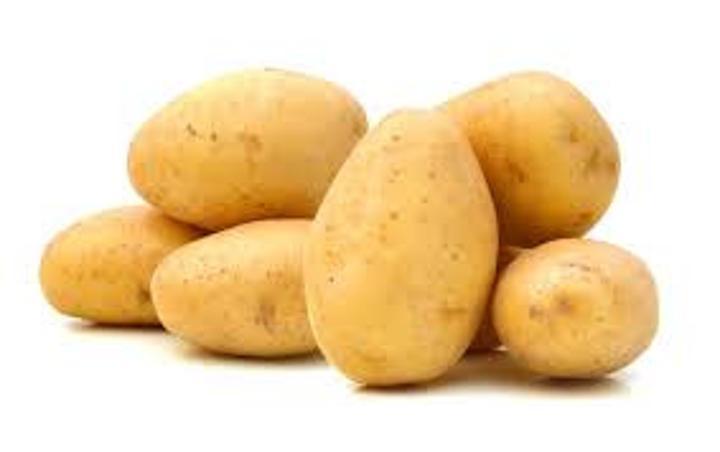By Tonderayi Matonho
Africa-Press – Zimbabwe. IN Zimbabwe’s peri-urban and rural fields, dedicated farmers grapple with the overwhelming influx of imports, determined to reclaim their livelihoods and restore pride in local produce for their communities.
Toiling under the scorching sun, in a world increasingly concerned with sustainability and food justice, the plight of African farmers is often overshadowed by the complexities of global trade.
As air-freighted horticultural products flood European markets, local agricultural sectors in Zimbabwe and neighbouring countries face an uphill battle for survival.
Food experts argue that the narrative around food kilometres must shift, placing the onus on scientific evidence to challenge prevailing misconceptions.
With rising importation and a lack of political will, the voices of food specialists and community leaders call for a renewed focus on local production and interregional trade.
This in-depth feature story explores the urgent need for a transformative approach to agriculture in southern Africa, highlighting the importance of local and regional markets and sustainable practices.
The discussion around food kilometres — how far food travels from farm to plate — has gained traction in recent years, often presenting a skewed picture of the environmental impact of imported goods.
Experts argue that the emphasis should be on a comprehensive analysis of greenhouse gas emissions, particularly from importing countries.
As one food specialist, Tinashe Ndlovu, an agricultural economist specialising in food security and sustainable farming practices, explained: “We need to demonstrate that the carbon footprint of air-freighted products is negligible compared to the emissions of importing nations. This isn’t just about propaganda; it’s about setting the record straight.”
Another food specialist, Chipo Mugari, emphasised the urgent need to prioritise local agriculture to combat food insecurity in Zimbabwe.
“Supporting our farmers is vital; they are the backbone of our communities and the key to sustainable nutrition and food security,” she asserted.
Kenyan professor Ruth Onyang’o, a prominent food scientist and nutritionist known for her work in food policy and sustainable agriculture in East Africa, has observed that in the face of current agricultural challenges, African countries are urged to develop interregional trade that supports local sectors like horticulture, fisheries and livestock.
“By prioritising local production, we can protect our farmers and ensure food security,” a senior official from the Agriculture ministry in Zimbabwe said anonymously, emphasising the need for political will and support.
Experts have critically noted that the influx of foreign products such as milk from the Netherlands, garlic from China and potatoes from France, has created a competitive disadvantage for local producers.
As Joy, an informal market vendor at the popular Mbare Market, expressed: “These imports are flooding our markets, making it hard for local farmers to sell their produce.”
The disparity is glaring: while local agricultural sectors struggle to compete, imported goods often dominate shelves, undermining community livelihoods.
Experts are calling for a more balanced approach that includes enforcing food kilometres for all products entering African markets.
“If we want to protect our local industries, we need to scrutinise imports just as we do for our exports,” a regional trade analyst asserted.
This perspective resonates across the Southern African Development Community, where there is a growing consensus on the need for stronger interregional trade agreements.
The potential for local and regional agricultural products to thrive lies in the development of agro-food units.
Public-private partnerships that encourage the production of goods such as fruit juices and preserves are key, food specialists advocate.
“These products are not only easier to store but can also be shipped to international markets, reducing our reliance on imports,” noted a private sector representative involved in agro-processing.
The call for agro-food units is not just about economic growth; it’s about creating sustainable livelihoods.
“Empowering local farmers through co-operative models can foster both community resilience and food security,” added a food security expert from a local non-governmental organisation.
The responsibility to bolster local agricultural production extends beyond individual countries.
Sub-regional organisations like the Common Market for Eastern and Southern Africa [Comesa] and the Economic Community of West African States [Ecowas] are pivotal in facilitating the necessary policy changes to support local and regional markets.
“These organisations must advocate for stronger policies that protect local agriculture from unfair competition,” stated a government official involved in regional trade discussions.
Further, by promoting intra-African trade, these organisations can help to foster a more equitable agricultural landscape.
This includes initiatives that not only prioritise local consumption, but also enhance the competitiveness of African products in global markets.
While the conversation around local and regional agriculture is crucial, it is equally important to address the financial hurdles that hinder growth.
Recently, Zimbabwe has seen an increase in tax regimes that disproportionately affect small-scale farmers.
“The high taxation is crippling our ability to produce and compete. We need supportive policies, not punitive measures,” lamented a farmer from Goromonzi.
Experts warn that without favourable tax policies, the trend towards importation will continue, further sidelining local production.
“The government must recognise that supporting local agriculture is essential for economic stability and food security.”
The path forward for African agriculture lies in a co-operative effort to prioritise local production and interregional trade.
By investing in agro-food units, promoting fair trade practices and supporting local farmers, the continent can reshape its agricultural narrative.
“It’s about harnessing our comparative advantages to become competitive in the global market,” says Ndlovu, the food specialist.
As voices from Zimbabwe and the broader southern African region converge on this critical issue, the urgency for change is palpable.
The call for fair trade is not just an economic necessity; it’s a moral imperative to ensure that local farmers can thrive and communities can flourish.
In this evolving landscape, the commitment to supporting local agriculture and fostering sustainable practices holds the promise of a brighter future for African farmers.
By empowering local markets and developing interregional trade, the continent can pave the way for food justice and economic resilience, ensuring that no farmer is left behind.
Source: NewsDay
For More News And Analysis About Zimbabwe Follow Africa-Press






